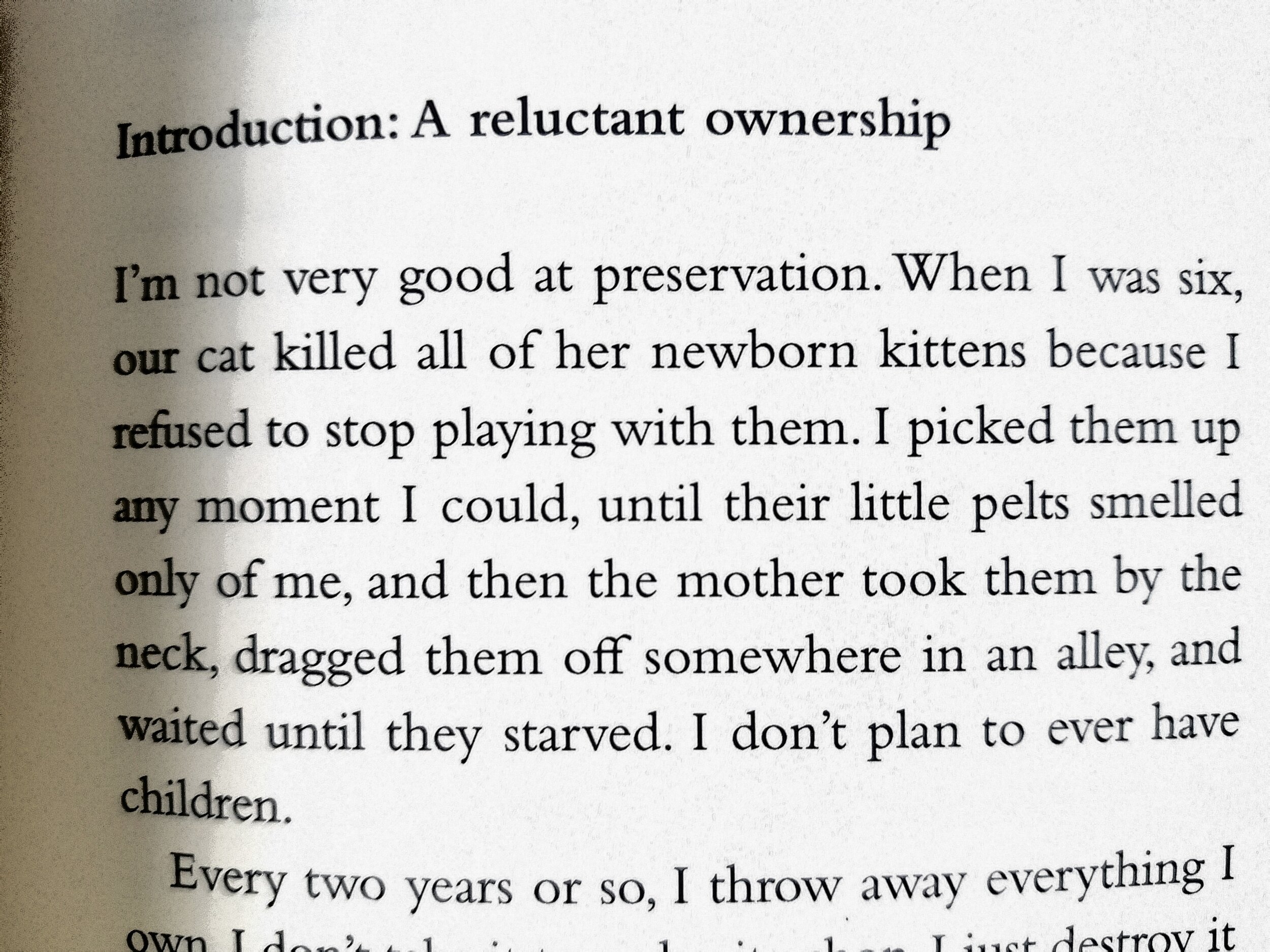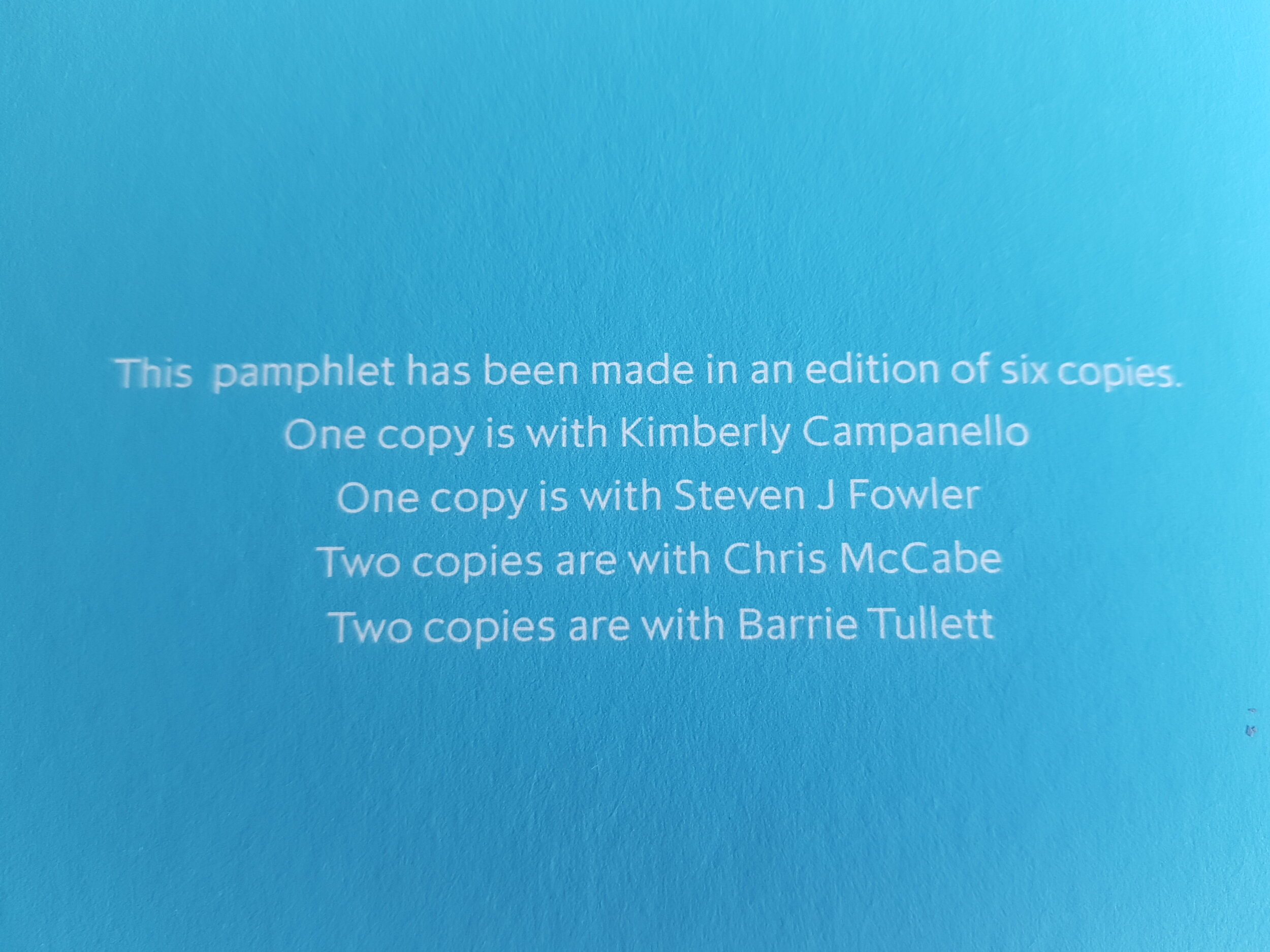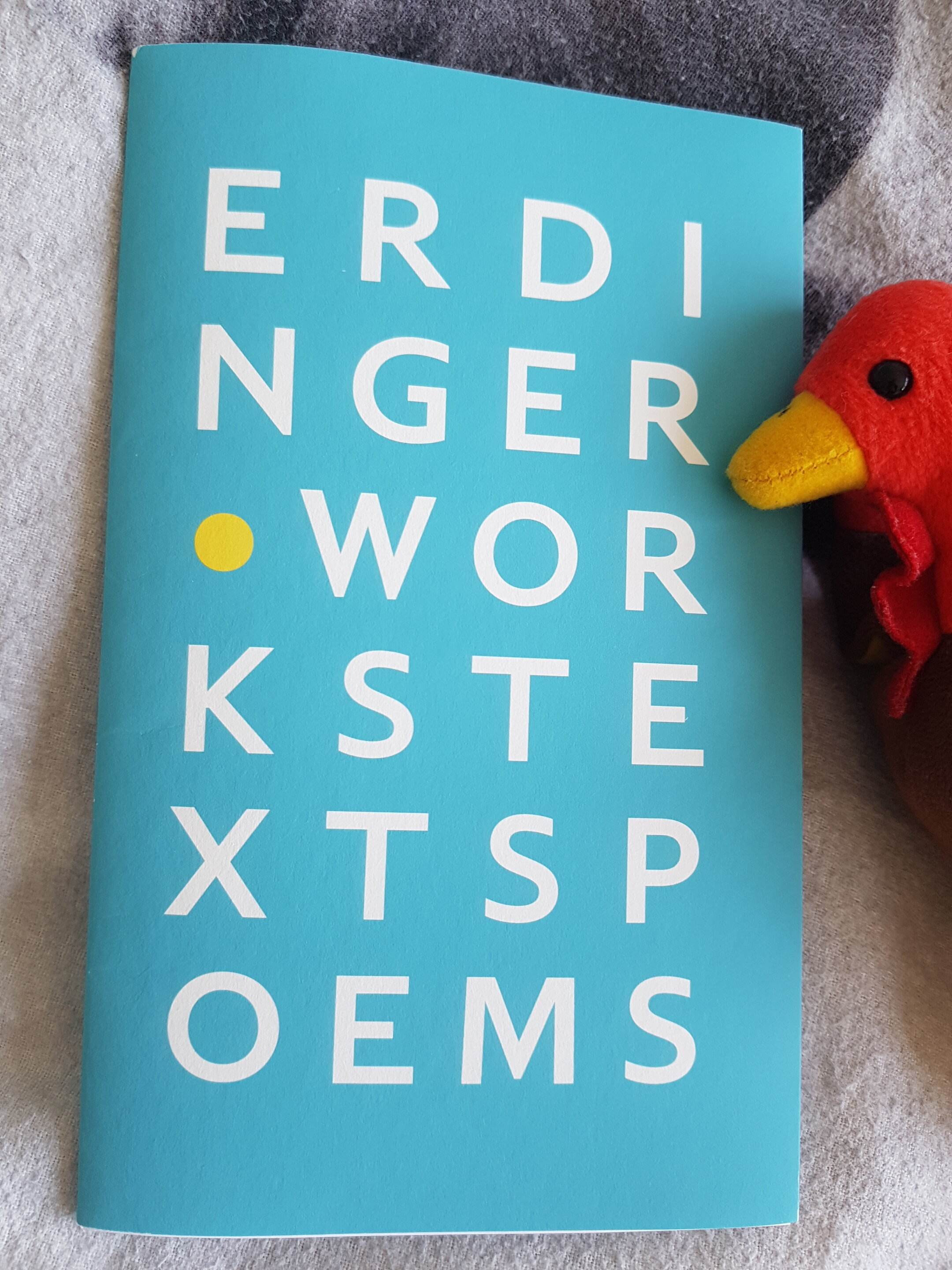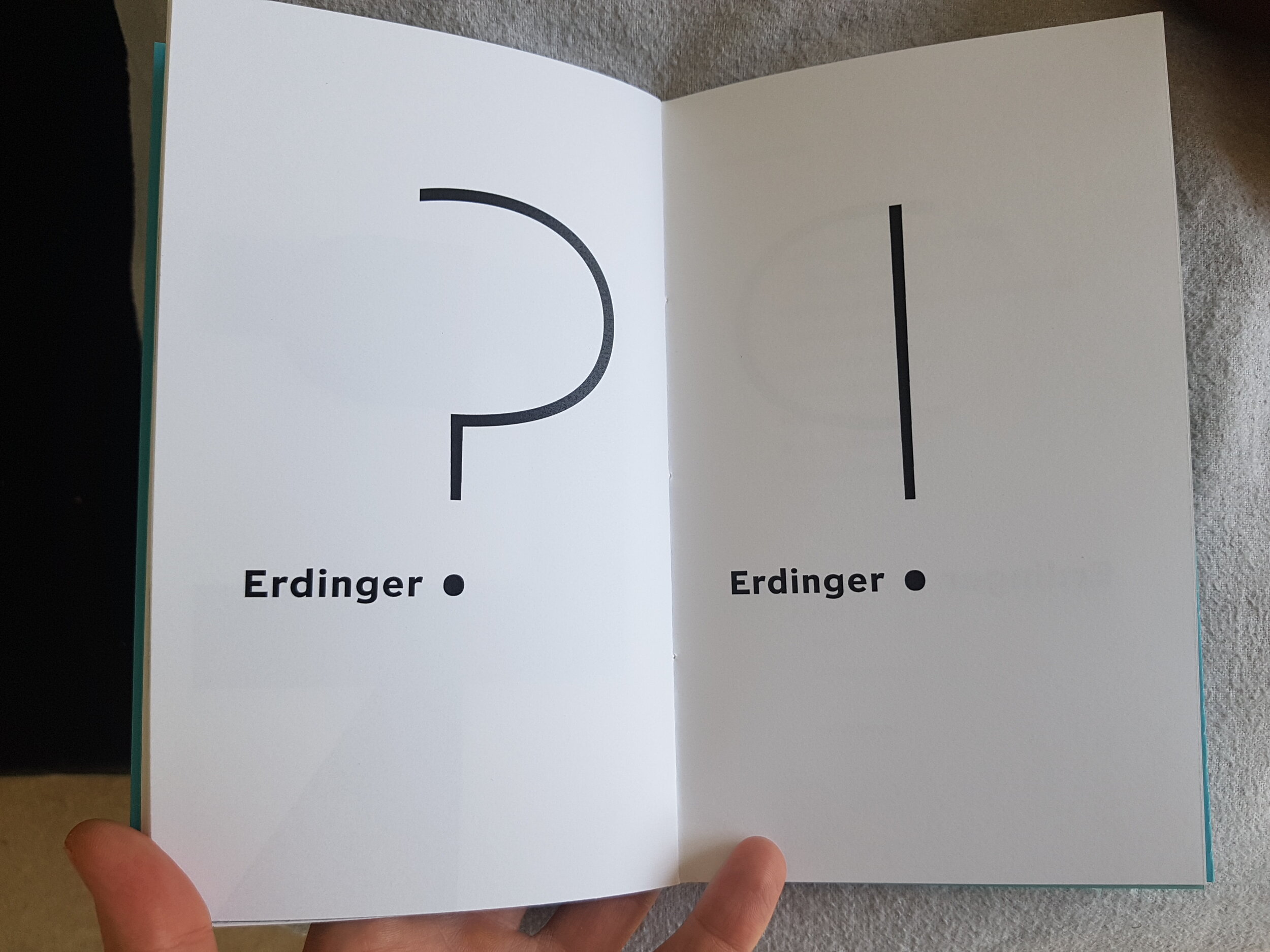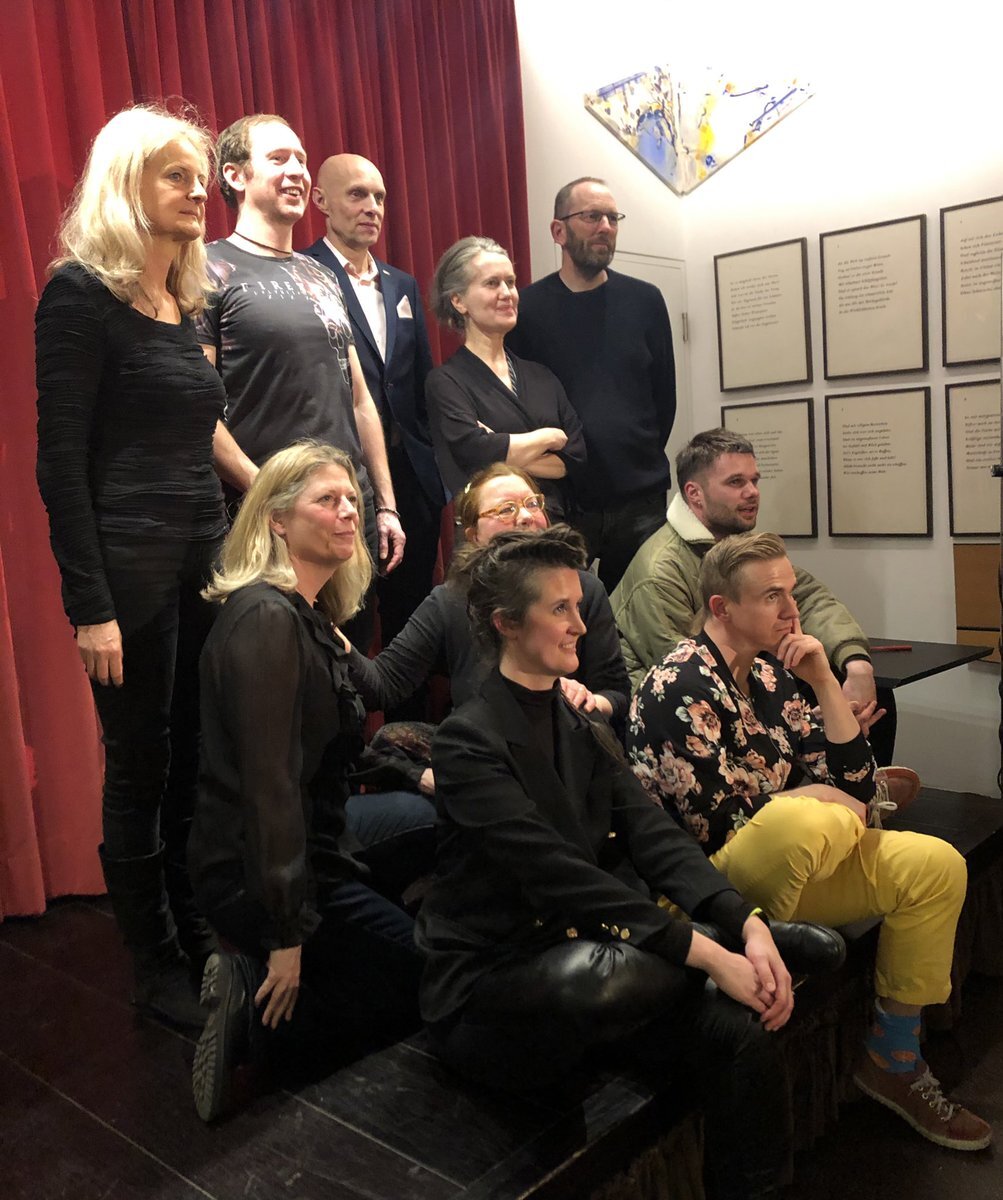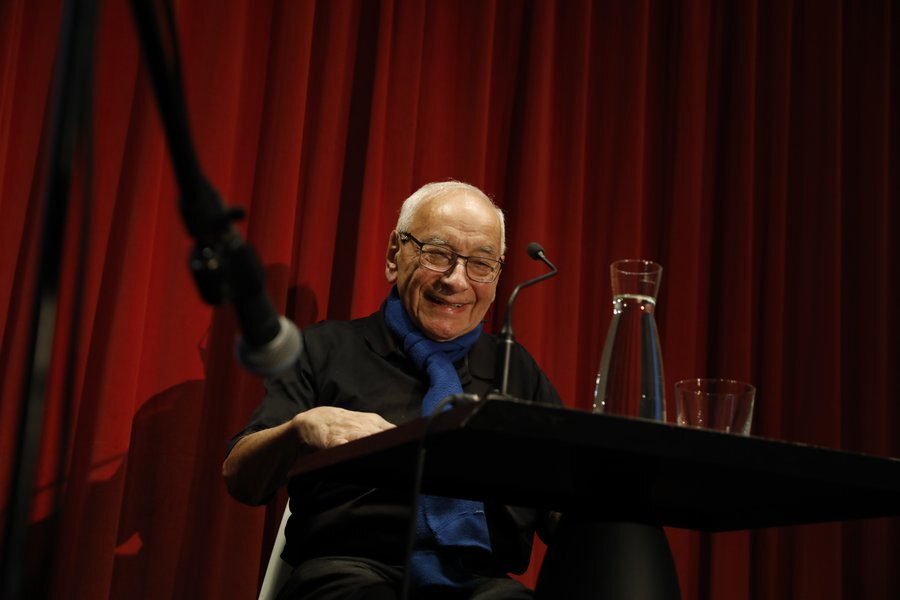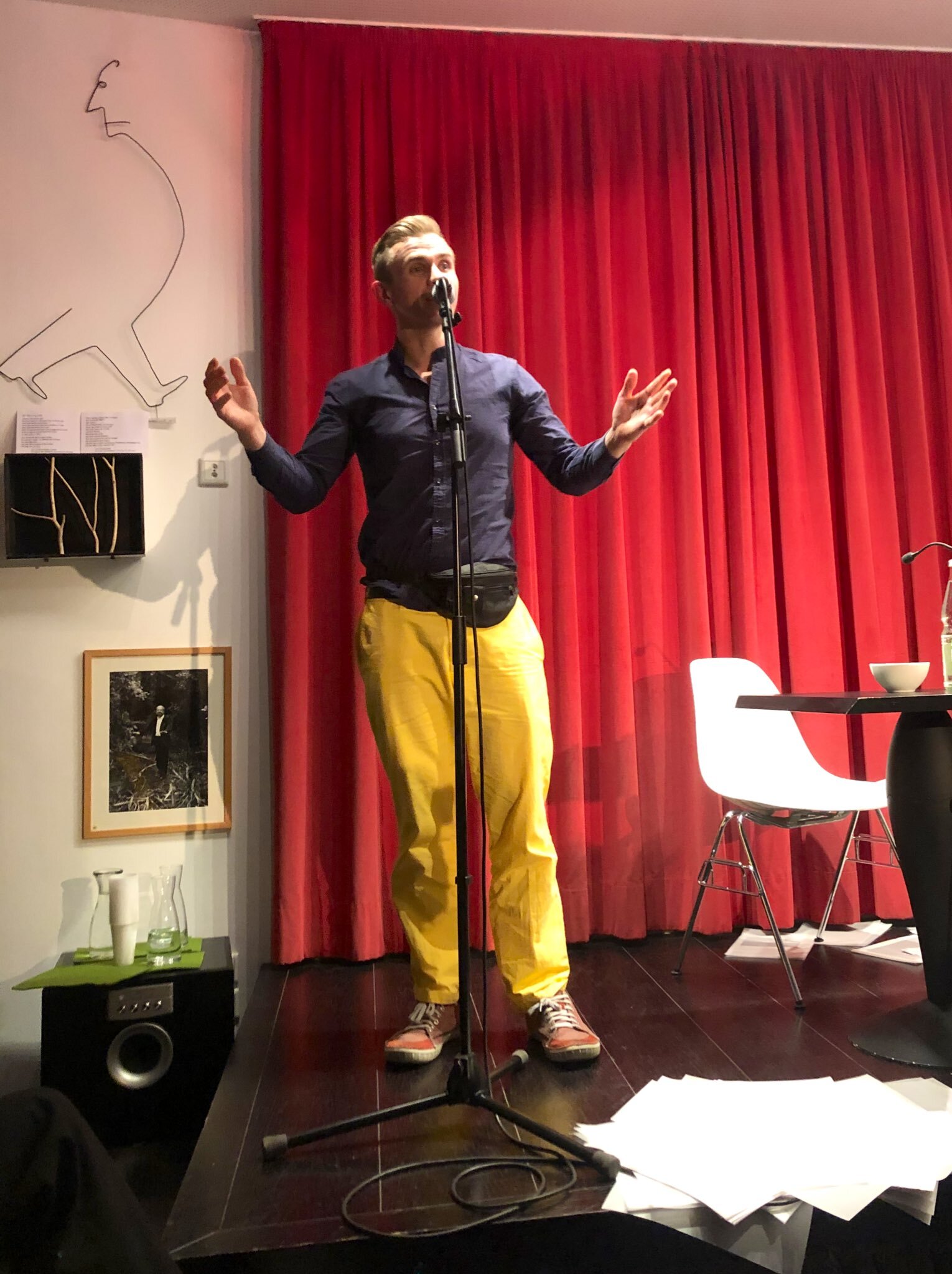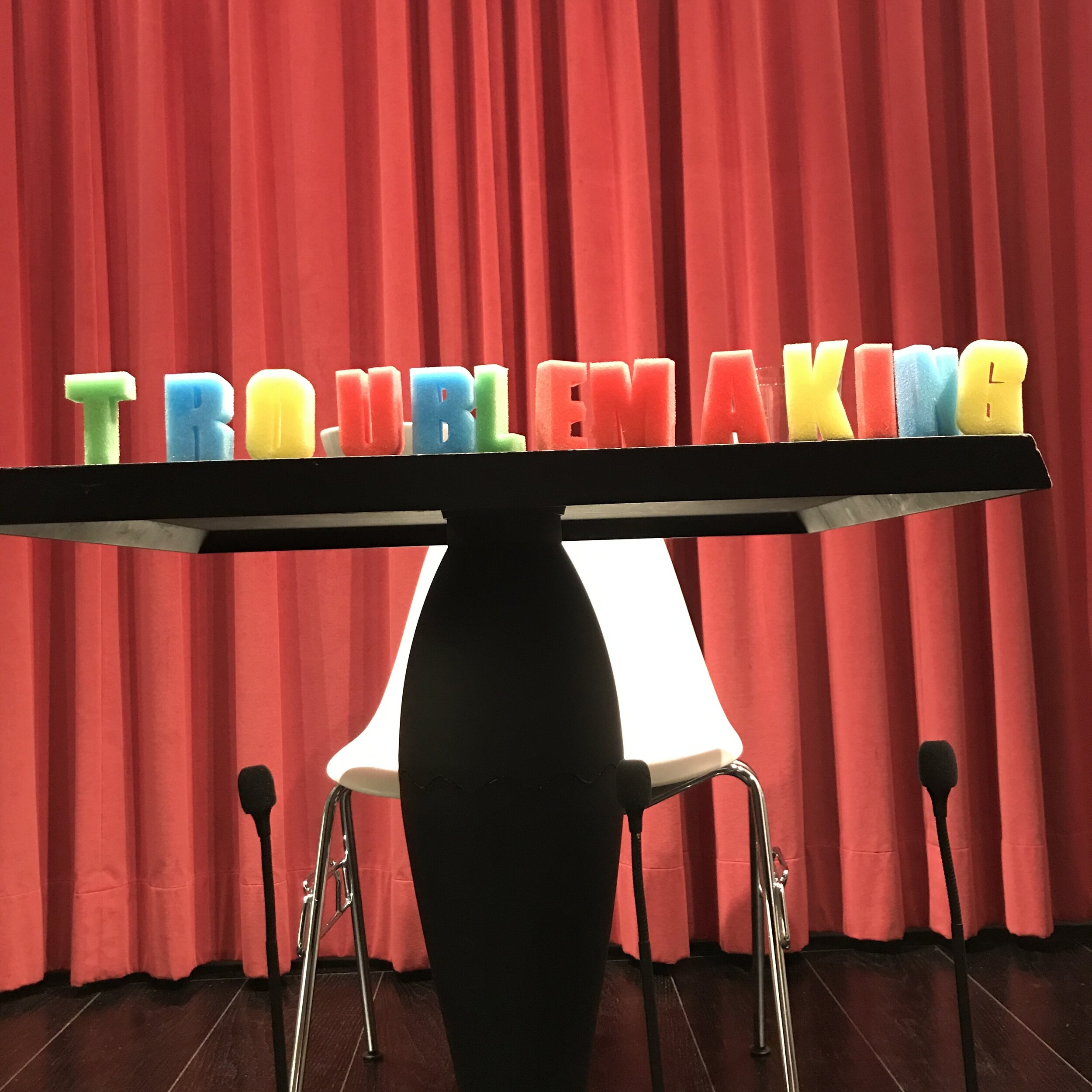Robert correctly utilises a crop of this picture as a visual interpretation of the word smug. It was taken in a park in Xalapa, Mexico, in 2014. It kindles nice memories because I look like a knob because I was nervous. The brilliant photographer, Citlali Angeles, in cahoots with my Mexican translator Monserrath Perez, asked me if I wanted to go explore Xalapa. I said yes even though the festival had told us not to go into the city as it was dangerous, really high level narco violence in that state at that time, proper kidnapping rates etc… These two young women proceeded to walk me through the city and into a park miles from the hotel. It wasn’t dangerous but because I was dressed like a bright jessop and whiter than sheets, everyone was staring at me. They then posed me in the park while a crowd watched me like i was a backstreet boy. So smug looks a lot like quietly nervous.
Robert Sheppard is banging out an amazing series of critical reflections on collaboration and poetry on his blog, and the latest instalment, 10, reflects further on my Nemeses book and its articles, as a way of discussing, generously, my wider poetics of collaborations. Without being gauche, it is really uplifting to have Robert reflecting on my reflections in this way, because of the respect I have for him and his work, and its influence on me. You can read the piece here, which follows number 9 in his series, which explored the review he wrote of Nemeses for Stride magazine https://robertsheppard.blogspot.com/2020/04/robert-sheppard-thoughts-on_3.html
Excerpts below, please click on the link for the full piece.
“Nemeses carries two prose ‘explanations’, the first short and introductory, the second more reflective. The first is entitled ‘A Note on How the Collaborations have been revealed’. Unlike me, Fowler’s not wasting time interrogating the word ‘collaboration’. Which is just as well, given the range of activities that he has undertaken under its umbrella. Indeed, that is his major concern here, his worries about trying to stage on the page, not just texts, but the performances they were often written for, or out of. Remember, some of the texts are post-performance notes. This worries Fowler: he is content to offer ‘a new work, at the very least an iteration or spawn of the collaboration that inspired it’, which offers a performative and an organic metaphor for the ‘new work’. (His use of the word ‘inspired’ is a surprising choice, perhaps shorthand, but it causes problems later.) But he is worried that some might be not inspired at all; he hopes they are ‘not a shadow of that, not a dead trace’. He admits to having to omit certain live performances that won’t fit in the book. My review proves that he has produced spawns not shadows. (If you are going to mix metaphors, mince them.)
On the other hand, he is clear his book is probably unique, with its cross-art explorations. But poetry is the starting point, he insists. In a parenthesis, he defines poetry (or the ‘language arts’) as ‘something language referent used for a primary purpose other than information or literal communication’ (a distant, clumsy relative of Wittgenstein’s comment in Zettel that a poem, while it uses the language of information, is ‘not used in the language-game of giving information’, a fragment which so energised Veronica Forrest-Thomson). But, more germane to my current theme, he talks of poetry, in these works ‘emerging with film, music, sculpture,’ etc. A formulation that might be contrasted with a sense of collaboration as ‘merging’. Emerging not merging. (p. 9) Co-emergence.
He offers one definition: ‘… collaboration is a way of learning, and a way of being a writer’. (p. 10) Learning, for the collaborators, could be positive or negative in terms of results (though all learning is arguably positive, whatever the results). As a way of being a writer, it’s a novel and learningful way of being so, guiding the emerging without merging.
The essay at the end of the book is entitled ‘A Nemetic Poetics, or Being Happy Alone in Company’, which, in its very name, pitches challenge (Nemesis) against the creative joy of collaboration, which is necessarily communal (although Fowler himself still clearly feels solitude in that situation). This piece divides between the personal (what collaboration does for Fowler) and the textual (the nature of what is produced via the modes of collaboration employed).
However, he rejects the argument that writing is a particularly lonely activity. It is a cliché of the profession. (But, writing as I am at home, with Patricia downstairs drawing, and Stephen in the next room, drinking his way through the morning, I’m not lonely at all. I would hate one of those Yaddo-type weeks in solitude writing, but neither am I a café writer.) ‘Everything that requires concentration is lonely,’ states Fowler, and I think I agree. (279) But ‘The usual monoculture of poetry is a stereotype responsible for quite a good deal of bad poetry,’ by which I take him to mean that the still-prevalent idea of the solitary genius leads to a particular kind of self-based poetry, or model of poetry: ‘ “popular” poetry is now resting upon a strong biographical context…’ (279). Poetry is quicker to write than a novel (Discuss!) but that’s not the main point. ‘Poetry is lonely because of the very specific 21st century milieu. Poetry is out of these times… It is a thing without market force, which allows it to create weird contextual manipulations of what quality is’ and requires concentration (from readers and writers). (279) This is perhaps a recasting of traditional arguments about the autonomy of the art object, the kind of thing that you find in Adorno and Marcuse. it is beyond the clutch of capitalism in its unusual self-definitions of quality. This is sometimes thought of as the source of the critical function of a poem (in this case).
But Fowler doesn’t follow this argument. Instead, he argues that ‘we are in an era when everybody’s brain is morphed by rapidity’. (279). He doesn’t bemoan this. ‘This is not necessarily a bad thing,’ (it’s just the way we are in our post-postmodernity, one might say, though Fowler, wisely, avoids this term. ‘But it is bad for good poetry,’ presumably because the morphed brains of poets are trying to work in a no-longer-sustainable solitary concentration on something with weird qualities. Fowler doesn’t recommend slowing down, on an analogy with slow food, for example. ‘The world has changed and the poem can only change so much.’ (280) There’s a minimal catch up possible on the poem’s part.
I don’t think Fowler is arguing for a golden era when age and poem worked in harmony. Indeed, that myth of such a golden age is found throughout the history of literature. I’ve been tracking the Renaissance and now the Romantics, in my ‘English Strain’ project, and the sense of poetry’s alienation from one’s age is felt throughout, is almost a cliché. ‘The world is too much with us,’ complains Wordsworth. Poetry’s critical distance (perhaps its formal distance; see here: http://robertsheppard.blogspot.co.uk/2014/05/robert-sheppard-formal-splinter.html) could be regarded as its strength, its critical function, but that isn’t a common thought, and it isn’t one entertained by Fowler. In short, whatever you do as a poet, ‘no one can care’. (280) That’s not a Sinatra-like chorus of ‘No One Cares’. No one can care – because of (let’s use Fowler’s word as shorthand) societal ‘rapidity’. Fowler surmises that this is OK, and could even be how we measure success: there’s no one here! But it’s lonely and, although academia might support one (does it?), on one hand you’re ‘unable to swallow the anti-intellectual and sentimental thrust that dominates’, but you’re ‘stuffed’. ‘What can one reasonably expect? To write difficult, strange, hermetic, coded, weird books and expect them to appeal to readers?’ (280) It’s just ‘funny’ to say so, Fowler concludes. (280) It is….”
The article continues, do visit the link for the full blast.
All of the collaboration articles by Robert can be read here https://robertsheppard.blogspot.com/2020/01/robert-sheppard-thughts-on.html







